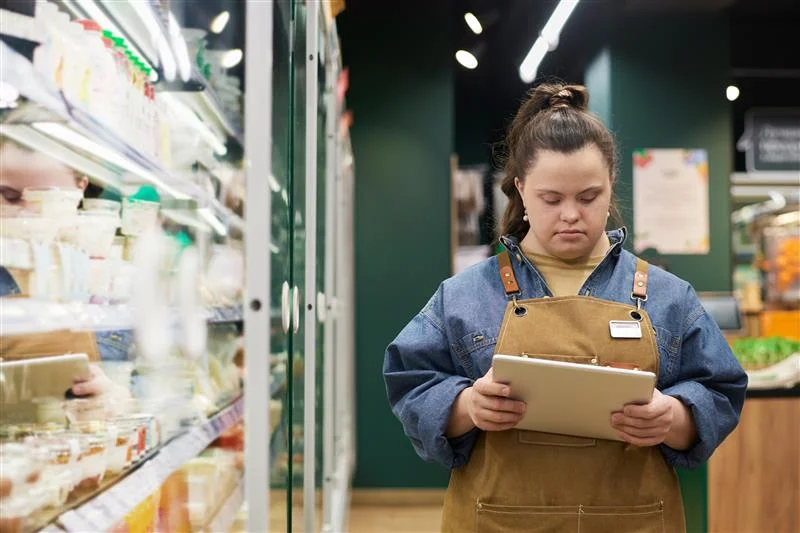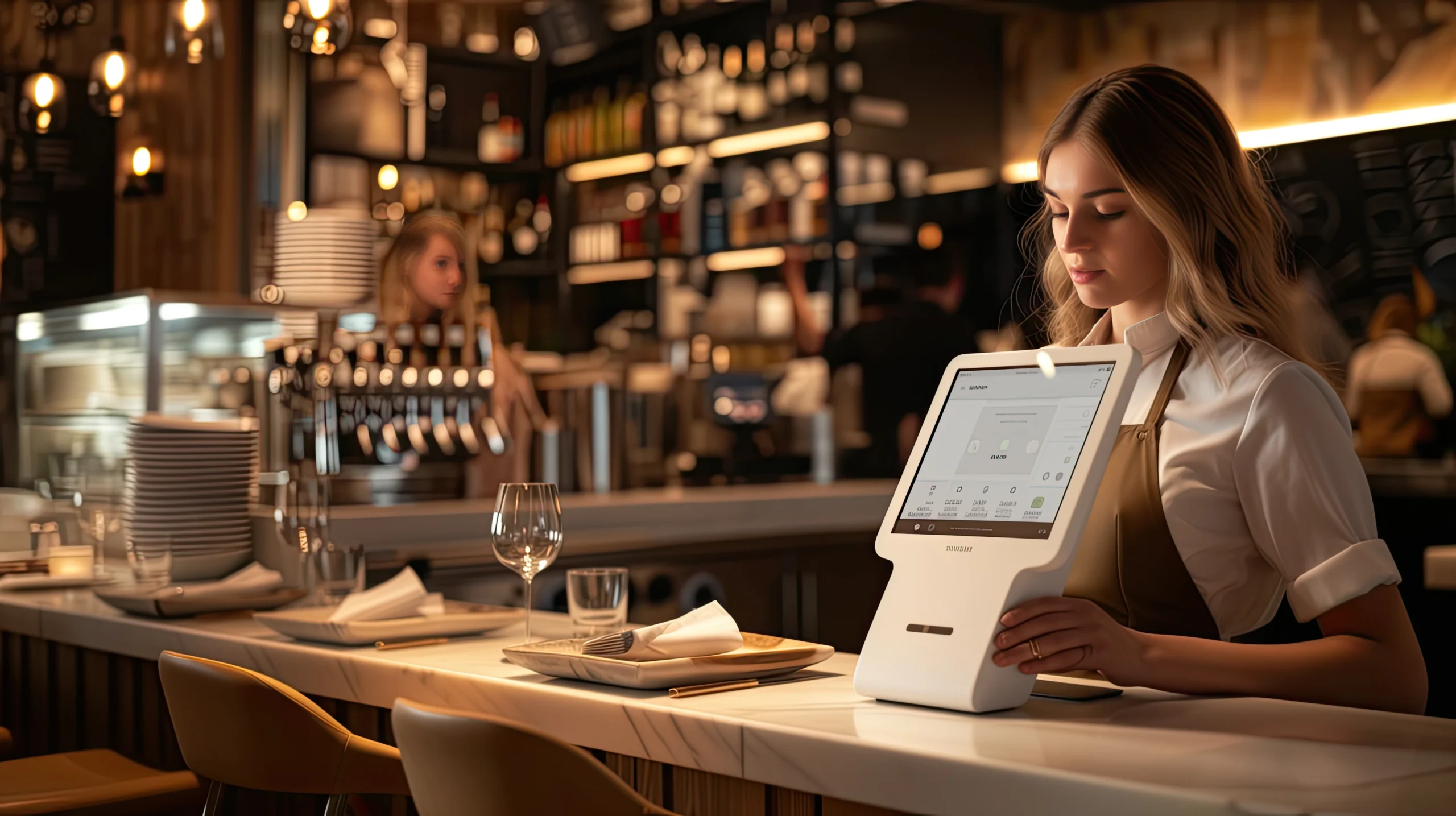Running a supermarket is a complex dance of supply and demand. From fresh produce that spoils quickly to everyday essentials that fly off the shelves, managing inventory effectively is the backbone of profitability and customer satisfaction. It’s not just about counting cans; it’s about predicting what your customers want, when they want it, and ensuring it’s there at the right price.
In a competitive market like Oman, where customers expect fresh, diverse, and readily available products, mastering supermarket inventory management isn’t just a good idea—it’s crucial for survival and growth. Let’s dive into the best practices that can transform your supermarket operations.
Why Inventory Management is Your Supermarket’s Secret Weapon
Preventing Lost Sales: Nothing is more frustrating for a customer than finding an empty shelf for their desired item. Good inventory management prevents stockouts, ensuring you never miss a sale.
Reducing Waste and Spoilage: Especially for perishables, overstocking leads to massive losses. Accurate inventory tracking minimizes waste, saving you money and reducing your environmental footprint.
Optimizing Cash Flow: Every item sitting in your backroom is capital tied up. Efficient inventory means you’re not overspending on stock that isn’t selling, freeing up cash for other business needs.
Boosting Customer Satisfaction: Happy customers come back. When they consistently find what they need, fresh and available, their loyalty grows.
Gaining Business Insights: Data from your inventory system can tell you a lot about sales trends, popular products, and even seasonal buying habits, empowering smarter business decisions.
Key Best Practices for Supermarket Inventory Management
So, how do you achieve this inventory nirvana? Here are some top strategies:
1. Embrace Technology: The Power of a Supermarket POS System Manual tracking is a recipe for errors and inefficiency. A robust retail POS system in Oman is your first and most vital step. Look for a supermarket POS system in Oman that offers:
- Real-time Inventory Updates: Every sale at the point-of-sale system for supermarket Oman should instantly update your stock levels.
- Barcode Scanning: Speeds up receiving, selling, and stock-taking, drastically reducing human error.
- Automated Reordering: Set minimum stock levels, and the system can automatically suggest or even place reorders when items run low.
- Reporting and Analytics: Detailed reports on sales, fast-moving items, slow-movers, and expiry dates are gold.
Many excellent supermarket management system Oman solutions integrate billing, inventory, and customer management into one seamless platform.
2. Accurate Demand Forecasting This is less about crystal balls and more about data analysis. Use historical sales data, seasonal trends, promotions, and even local events to predict future demand. A good supermarket inventory management software in Oman can help you analyze these patterns and generate more accurate forecasts. This is crucial for perishable goods with short shelf lives.
3. Implement the First-In, First-Out (FIFO) Principle For perishable and date-sensitive items (think dairy, fresh produce, and baked goods), always sell the oldest stock first. This minimizes spoilage and ensures customers receive fresh products. Train your staff in proper stocking techniques to facilitate FIFO.
4. Regular Inventory Audits and Cycle Counting Even with advanced systems, discrepancies can occur.
- Full Inventory Audit: A complete count of all stock, typically done less frequently (e.g., annually).
- Cycle Counting: Regularly counting a small, specific portion of your inventory. This helps identify and correct errors much faster and minimizes disruption. Focus on high-value or fast-moving items for more frequent cycle counts.
5. Optimizing Storage and Layout Efficient storage isn’t just about saving space; it’s about reducing retrieval time and minimizing damage.
- Organize your stock logically, perhaps by category.
- Ensure proper temperature control for sensitive items.
- Keep aisles clear and well-lit for easy access and safe movement of goods.
6. Strong Supplier Relationships Your suppliers are your partners. Building strong relationships leads to:
- Timely Deliveries: Reduces the risk of stockouts.
- Better Terms: Potentially better pricing or payment terms.
- Improved Communication: Early warnings about supply chain issues or new product availability.
7. Manage Perishables with Precision This is often the biggest challenge for supermarkets.
- Short Shelf-Life Tracking: Use your supermarket inventory management system Oman to track expiration dates rigorously.
- Dynamic Pricing: Implement strategies to discount items nearing their expiry date to move them quickly.
- Small, Frequent Orders: For highly perishable items, order smaller quantities more frequently to ensure freshness and reduce waste.
8. Leverage a Comprehensive Supermarket Management System Beyond just inventory, a complete supermarket management system in Oman integrates various aspects of your operations. This often includes features like
- Supermarket billing software for fast and accurate transactions.
- Customer loyalty programs.
- Staff management and shift scheduling.
- Financial reporting and accounting integration. Having everything under one roof provides a holistic view of your business and streamlines workflows.
The Future is Smart: Investing in the Right Tools
For supermarkets in Oman looking to stay competitive and cater to evolving customer demands, investing in the right technology is non-negotiable. A modern retail POS system in Oman that incorporates advanced supermarket inventory management software is the cornerstone of efficient operations. It’s not just about managing stock; it’s about making data-driven decisions that lead to increased sales, reduced costs, and happier customers.
By adopting these best practices, supermarkets can transform their inventory from a constant headache into a powerful asset, ensuring their shelves are always stocked with what customers want, when they want it.
Frequently Asked Questions
What is inventory management in a supermarket?
Inventory management in a supermarket is the process of efficiently tracking, ordering, storing, and selling all products to ensure optimal stock levels, minimize waste, and meet customer demand.
1. Why is effective inventory management so important for supermarkets in Oman?
Effective inventory management is crucial for profitability, reducing spoilage (especially in Oman’s climate), preventing lost sales due to stockouts, optimizing cash flow, and enhancing customer satisfaction by consistently providing fresh and available products.
2. What is a POS system, and how does it help with supermarket inventory?
A Point of Sale (POS) system is the hardware and software used to process customer transactions. For inventory, a supermarket POS system in Oman automatically updates stock levels in real-time with every sale, providing accurate data for reordering and analysis.
3. What are the biggest challenges in supermarket inventory management?
Key challenges include managing perishable goods with short shelf lives, unpredictable demand fluctuations, dealing with a vast number of different products (SKUs), preventing theft or damage (shrinkage), and ensuring data accuracy across all channels.
4. How can technology, like a supermarket inventory management system, help?
Technology, specifically a supermarket inventory management system in Oman, automates tracking, provides real-time data, enables accurate demand forecasting, facilitates automated reordering, and generates detailed reports, significantly reducing manual effort and errors.
5. What is “FIFO,” and why is it important in a supermarket?
FIFO stands for “First-In, First-Out.” It’s a method where the oldest inventory is sold or used first. In a supermarket, especially for perishables, FIFO is critical to minimize spoilage and ensure customers receive the freshest products.
6. How often should a supermarket conduct inventory counts?
While a full annual inventory audit is common, supermarkets should also implement “cycle counting,” where smaller sections of inventory are counted regularly (e.g., daily or weekly). This helps catch discrepancies faster and maintain higher accuracy.
7. Can a supermarket management system in Oman help with more than just inventory?
Yes, a comprehensive supermarket management system in Oman often integrates various functions like supermarket billing software in Oman, customer relationship management (CRM), staff management, supplier management, and financial reporting, providing an all-in-one solution for efficient operations.



